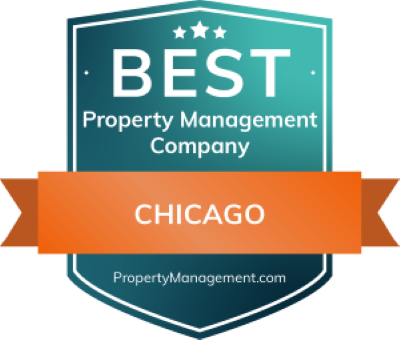
Owning rental properties can be a lucrative investment, but managing these assets can be time-consuming and challenging. Understanding how much it costs to hire a property manager is crucial to making informed decisions when hiring one. In this ultimate guide, we dive into the different fee structures, essential components of property management costs, and tips for choosing the right property management company.
Key Takeaways
This article provides an overview of property management fees, covering factors that influence them and the different fee structures available.
Property managers typically charge a percentage of the monthly rent as well as additional fees for services such as vacant property management, lease setup, late payment fees etc.
When selecting a property manager, research reviews & seek referrals/recommendations to find the right company for your needs.
Understanding Property Management Fees

Property management fees, sometimes referred to as management fees, vary depending on several factors, such as the services provided, the size and age of the rental property, and its location. Generally, property management companies charge either a fixed monthly fee (flat fee) or a percentage of rent. Some companies provide an all-inclusive fee, while others offer a la carte or pay-as-you-go services.
Fixed Monthly Fee
A fixed monthly fee or flat fee is a regular payment charged by property management companies for their services, calculated based on factors like the property type, square footage, and requested services. While there is no industry standard, we most commonly see fixed fees for single-family homes in the range of $100-150 per month. This fee structure provides property owners with a predictable expense, making it easier to budget for property management costs.
Nonetheless, both the price and the quality of service should be taken into account when deciding on a fee structure and selecting a company. Comparing fixed monthly fees to other fee structures can help you determine which option best suits your needs and financial goals.
Percentage-Based Fee
A percentage-based fee is another common fee structure, where property managers charge a percentage of the monthly rent. Again, while there is no industry standard, we most commonly see percentage-based fees for single-family homes in the range between 8% and 12%. This fee structure is often favored by property managers, as it aligns their interests with those of the property owner, incentivizing them to maximize rental income.
Vacant properties, on the other hand, might attract higher fees as property managers frequently charge a percentage of the expected monthly rent. Although, many fee-based property management companies don't charge at all while the unit is vacant.
When deciding which fee structure best suits your rental property, it is necessary to balance the advantages and disadvantages of percentage-based fees and compare them to other options.
Additional Charges
In addition to the primary fee structures, property management companies may also charge additional fees for various services. Some of these include:
Vacant property management
Leasing fee
Onboarding fee
Late payment fees
Maintenance coordination fees
Advertising fees
Eviction fees
For example, we most commonly see property management companies collect a leasing fee equivalent to one-half to one month's rent for vacant properties.
These fees aren't inherently good or bad but understanding these extra charges is vital when evaluating the total cost of property management services. Make sure to review your property management contract thoroughly and clarify any fees or charges you are unsure about before signing. Partnering with a property manager should be a long-term relationship and at the end of the day, you want to make sure what you are getting into.
Essential Components of Property Management Costs

Property management costs usually consist fall into one of three categories: tenant placement (leasing), maintenance and repair services, and legal and administrative work. Gaining insight into each component allows you to more accurately assess the value of property management services and make knowledgeable decisions about working with a particular property manager.
In the following sections, we delve deeper into each of these areas and provide insights into their impact on property management costs.
Tenant Acquisition and Placement (Leasing)
Tenant acquisition and placement fees usually cover various services, including:
Advertising the property
Tenant screening
Touring or showing the property
Drafting leases
Move-in inspections
These fees typically range from 0.5 to 1 month's rent. In some cases, the tenant placement fee may be refundable if the tenant breaks the lease or is evicted, depending on the terms of the property management agreement.
Maintenance and Repair Services
Maintenance and repair services play a significant role in property management costs. Property owners should factor maintenance expenses into their budget. A rule of thumb is to allow at least 1-1.5 times the monthly rental rate for these fees on an annual basis. A well-maintained property not only attracts better tenants but also helps preserve its value.
Legal and Administrative Support
Legal and administrative support fees can include eviction and collection services, late payment fees, and contract termination fees. These services are essential for property owners to protect their investments and ensure compliance with landlord-tenant and fair housing laws. These fees are typically on an a la carte basis and vary greatly. The key is making sure they are identified in the property management agreement for the property manager in which you are considering working. If you don't see them listed in the property management contract, make sure to ask the property manager before signing.
Evaluating the Value of Property Management Services

To determine the value of property management services, it is essential to consider three key aspects: time savings, expertise and experience, and return on investment. Having insight into how these factors contribute to the value of property management services allows property owners to make more educated decisions when hiring a property manager.
Let's break down and discuss each of these three areas in more detail and provide insights into how they impact the value of property management services.
Time Savings

One of the primary benefits of hiring a property manager is the time savings they provide by handling day-to-day operations, tenant issues, and maintenance. By delegating these tasks to a property manager, landlords can focus on other aspects of their investment or personal life.
Research shows that landlords allocate an average of 47.5 hours per year per property to property management tasks. Engaging a property management company can significantly reduce this time commitment, allowing landlords to enjoy the benefits of their investment without the hassle of day-to-day management.
This is one of the most important aspects to consider and often the most overlooked. Imagine getting a working week of your life back every year. What could be done with that time? Envision the extra time spent with family, traveling, engaging in your hobbies, or pursuing your dreams. How do you put a price on that?!
Expertise and Experience
The expertise and experience of property managers can have a huge impact on rental income and property value. Some benefits of hiring an experienced property manager include:
Understanding the local market
Attracting and retaining high-quality tenants
Effectively managing properties to increase rental income
Improving property value
Hiring an inexperienced property manager can result in difficulties attracting tenants, delays in addressing maintenance issues, and decisions that negatively affect rental income and property value. One of the worst-case scenarios is your inexperienced property manager rents the property to an unqualified tenant who doesn't pay rent and does substantial damage to the property. This can be devastating to your investment, especially here in Chicago where it can take a minimum of 6 months to get a tenant evicted (although I've seen evictions also take well over a year). As you can imagine, it is crucial to thoroughly assess the expertise and experience of potential property management firms before reaching a decision.
Return on Investment
To assess the return on investment (ROI) of property management services, property owners can compare the cost of these services to the potential increase in rental income and property value. A satisfactory ROI for rental property is going to depend on your individual goals.
Using the formula ROI = (Net Operating Income / Total Investment) x 100, property owners can calculate their return on investment and evaluate the financial benefits of hiring a property manager (or if the property even makes sense as a rental). This information can help property owners make informed decisions about property management services and ensure they receive the best value for their investment.
Tips for Choosing the Right Property Management Company

Choosing the right property management company is essential to maximize the benefits of property management services. In this section, we’ll provide tips on how to research and read reviews, seek referrals and recommendations, and inquire about fees to find the best property management company for your needs.
With these tips in mind, property owners can make better-informed decisions about hiring a property manager, ensuring they get the most value for their investment.
Research and Reviews
Researching and reading reviews of property management companies can provide valuable insights into their reputation and quality of service. By reviewing the company's Google reviews, property owners can obtain a better understanding of the company's performance and customer satisfaction.
When scrutinizing customer reviews, it is important to:
Read several reviews
Identify recurring themes
Consider the overall sentiment
Gauge the credibility of the reviews
Look for the company's responses
In my opinion, this is by far the most important piece of your research. Google reviews are like your credit - it's very hard and it takes a long time to build a great online reputation while only a few negative remarks can bring the score down significantly. You want to read through the reviews and get a feel for how they treat their tenant and owner clients, what the recurring themes are, and how they handle specific issues. A high-quality company (in any field) should be receptive to feedback (ie. Google reviews) and use it to increase the quality of their product or service. A low rating on Google or issues that keep recurring are a telling sign that the company may not be focused on continual improvement. If you truly care about your investment property and the experience you and your tenant receive, this is something that I would recommend avoiding at all costs.
Referrals and Recommendations
Seeking referrals and recommendations from other property owners or real estate professionals is another valuable method for finding a reliable property management company. By asking pertinent questions and assessing the recommendations attentively, property owners can make an educated decision and find the right property management company for their requirements.
Consider the following factors while assessing recommendations for a property management company:
Specialization in the particular property type
Licensing and continuous training
Experience and property portfolios
Fee structure
Overall impressions
While we recommend asking around for referrals, this in itself shouldn't replace your due diligence. One person's perspective shouldn't trump a large body of reviews so we still highly recommend you read through their Google reviews to see how they performed on a larger and longer scale.
Summary
Understanding property management costs is crucial for property owners looking to maximize their return on investment. By considering the different fee structures, and essential components of property management costs, and evaluating the value of property management services, property owners can make informed decisions about hiring a property manager. Following the tips provided in this guide can help property owners choose the right property management company and ensure they receive the best value for their investment.
Frequently Asked Questions
What are the most common fee structures for property management companies in Chicago?
In the Chicagoland area, we most frequently see companies charging a percentage of the rent amount. The second most common fee structure is a fixed or flat rate per unit.
What is the average property management fee in Chicago?
The average property management fee for rental properties in Chicago is between 8% and 10%. Additional fees and services should be considered when evaluating property management options.
What is the average leasing fee in Chicago?
The average leasing fee that we most commonly see in Chicago is one month's rent.
How much does a property management company charge for maintenance in Chicago?
This can vary greatly depending on a lot of factors - the largest being the type of work being completed. General "handyman" type of repairs are usually billed out between $75-$125/hour while skilled trades are typically $115-$175/hour.






